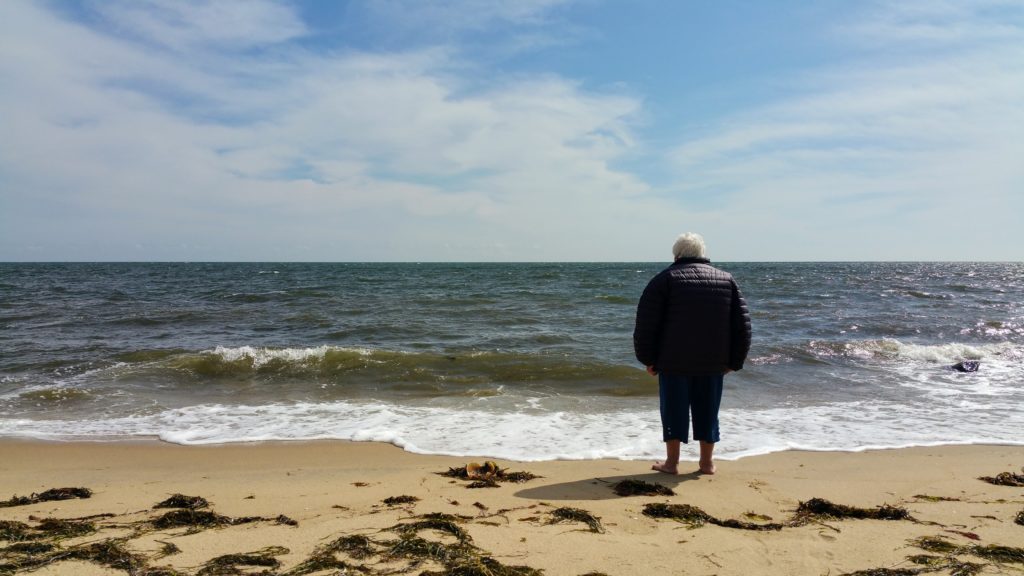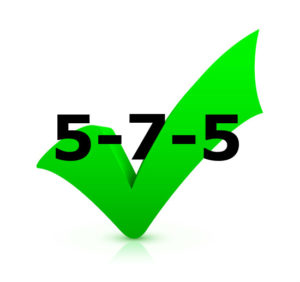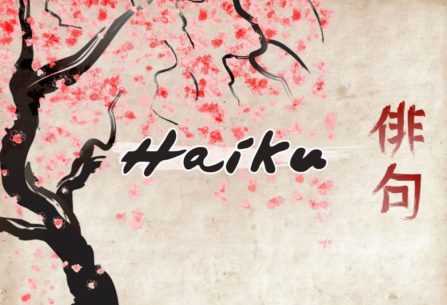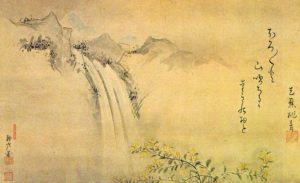Dunkirk NY – Well, that didn’t take long.
Last week I received my copy of frogpond, which is the thrice-yearly publication of haiku by the Haiku Society of America. The arrival of the journal piqued my interest, and so I went over to HSA’s website to review the submission guidelines. I came across Guideline #2, which reads as follows:
2. All submissions must be original, unpublished work that is not under consideration by a print or web-based journal. While posts on Internet sites such as Facebook or Twitter are eligible, posts on blogs are not.
Since I am currently involved in National Haiku Writing Month, it struck me that any haiku I might write and publish on this blog would become ineligible for publication in frogpond. However, the haiku of those participating via Facebook or Twitter would remain eligible for publication. This struck me as inconsistent, to put it politely, so I wrote to the editor of frogpond for some clarification as to why this distinction existed.
The editor’s response was that haiku posted on Facebook or Twitter were “only available to friends or followers” while haiku on blogs were “open to the public” and therefore considered to be published. Since I found this answer to be inconsistent as well, I pressed the editor a bit, pointing out that Facebook is only private when a user changes their settings from “Public” (the default) to any other private setting, and that FB and Twitter can be just as public as any other internet platform. The editor was patient with me, offering more clarification, but of course the guideline is not going to change because some newbie points out an inconsistency. The position of the HSA is that haiku published on a blog like this one cannot be considered for publication in frogpond, while haiku published on Facebook and Twitter remain eligible for publication.
So I find myself already in opposition to a particular position of an organization which I’ve just recently joined. Now I have to make a decision as to whether or not to continue to publish haiku on my blog. Perhaps other journals are equally resistant to accepting haiku published on a website, and this is not unique to frogpond or the HSA. So I think I will spend some time publishing here an essay on why, in my opinion, this distinction is discriminatory, and also why I think it really shouldn’t matter at all, being a leftover from 20th century ideas about publication.
Some context is in order before I begin. Being a retired academic, I spent my working career in a “publish or perish” environment. As a performing artist, I had to fight to get non-artistic colleagues to accept that my public performances were the equivalent of a publication (“but where are your publications?”). I spent many years fighting against this mentality, taking the position that good teaching was far more valuable in terms of determining the value of a professor than the number of publications they had. It was very difficult for me to accept the notion that, somehow, being published in some obscure academic journal read only by others in the profession was an important requirement for gaining tenure. This “publish or perish” mentality in higher education is a scar on the landscape, and its significance is way out of proportion to its relevance. This personal bias probably informs to a large extent my views on what constitutes “publication.”
To cut to the chase – any platform on the internet can be made to be as public as anyone wants it to be, and the distinction between FB/Twitter as being available “only to friends or followers” while blogs are “open to the public” is simply not factual. Anyone who sets their privacy settings on FB/Twitter to “Public” has a public presence on the internet that anyone with or without a FB account can see. To argue the reverse – I can lock down this blog (which is pretty locked down already) so that only subscribers to this blog can see it. Would that be the equivalent of “only friends or followers” on FB, and thus make the haiku posted here eligible for publication?
Then there is the question of intent. Why is a FB/Twitter account assumed to be personal, while a blog is not? I think this indicates a poor understanding of what the internet is about. The problem is that, since any internet platform can be used for a myriad of purposes, judging its intent is completely subjective. To draw some sort of definitive line and treat it as if it were an objective reality is rather ludicrous at this point in time. You can, I suppose, go ahead and do that, but you should realize it’s a method of exclusion and not inclusion. You are only asking for trouble when you include one form of internet publication and exclude another by assuming intent.
Personally, my intent is not to use my blog as a publishing platform. If that were my intent, I certainly would not have it as locked down as a I do. I would allow comments, use Google Analytics, allow it to be searched, increase my SEO presence, and use other means to generate views were that the case. Facebook and Twitter quite often are used as public publishing platforms, and it’s only because of all the personal data abuses and leaks that FB has experienced that people have become more concerned about keeping their information more private. I mean, if you get on any internet platform at all for any reason, you’re probably interested in someone somewhere reading your work.
I think one has to realize that the internet is a place where people now go to draw attention to their work and talent, and not exclusively to self-publish. It’s a stepping-stone someone can take to bring attention to their work that they might otherwise not get. It’s an avenue that did not exist 30 years ago. When an organization like HSA takes a position that it will not accept haiku published on blogs or any other sort of digital platform, I think what it’s really doing is trying to prop up and defend a mindset that was in existence 30 years ago. I’d also think that this approach would be discouraging to younger people interested in the form. If I were a millennial who came across this particular submission guideline, I guess my response would be “OK, Boomer.”
This mindset was also something that plagued academia in the early days of the internet – was a digital journal really a legitimate journal? I had something published in a very early digital journal, and my colleagues questioned whether or not it should count as a “publication.” Despite the fact that I could demonstrate that the editors were legitimate leaders in the field, and that the journal was peer-reviewed in the same manner as a printed journal, it was still a fight to get it accepted. I even remember a time when colleagues would not accept student papers that were printed by a dot matrix printer – it had to be typewritten! Today, since most journals now have digital and printed versions, no one really questions this much at all.
Another point to consider is the actual business model of the platforms in question. At one time I had both Facebook and Twitter accounts, as well as LinkedIn, because they became a professional necessity. Once I retired, I closed down all my social media accounts. Like many others, at first I had a very benign approach to the platforms, and enjoyed the experience of being able to keep up with family, friends, and former students. However, as I became more aware of the business model employed by these companies, which is essentially that they steal your personal data in an attempt to monetize it for their profit, and otherwise try to influence your behavior, I realized it was imperative to protect my privacy to the extent that I could, and rid myself of this unwanted invasion. The writings of Jaron Lanier were very influential in my decision, and I continue to make efforts to resist “surveillance capitalism.” It is strange to me that the HSA is more willing to accept haiku which might appear on these data-stealing, privacy-invading platforms (which more and more people are advising you to delete or at least minimize from your life) than from a personal blog that does not participate is such questionable practices.
Lastly, I think this issue points to a certain preciousness about the material. What does it really matter where and how a haiku gets published? If my haiku is good, why would it matter to HSA or any other venue that it first appeared on my blog? Wouldn’t they want to share good haiku with their readers who might not be aware of my blog? What is this preciousness about where a haiku first appears or is published? I confess I just don’t get it. Again, it sort of has the feel of exclusivity about it. As long as the haiku is properly attributed to its author, I would think that where and how it was first published would be a rather insignificant detail. We are living in a time where exclusivity of any sort is under close scrutiny. One would think that a more open approach to haiku publication would encourage more diversity and reduce the appearance of the HSA looking like some sort of exclusive club.
I’d be more understanding if there were significant sums of money involved. Publication rights can be a big deal when it comes to compensation for your artistic work. But as far as I know, there really isn’t any big money in writing haiku. I imagine some people make some money through publication of their work, but I can’t imagine it’s enough to make a living. I’ve toyed with the notion of self-publishing my own haiku through Amazon Kindle and charging $1.99 or so for the book, but I would not expect to make very much money from such an effort. Perhaps this lack of preciousness on my part comes from a lifetime of making little money as a professional actor. According to the data, something like 90% of all the money in the entertainment business spent on performers is made by 8% of the talent pool in this country. As far as I can tell, no one is making any great fortune as a writer of haiku. It seems to be populated by well-intended people looking for some meaning, quiet meditation, and perhaps a bit more solitude in their lives, and sharing that search with others through their haiku; not with people interested in becoming famous or rich.
So it seems I am at a crossroad. My choices appear to be:
- Write for National Haiku Writing Month but not publish them on my blog so as to keep them eligible for submission to frogpond or other publications
- Write for NHWM and publish them on my blog, giving up the opportunity to submit them to frogpond and perhaps other publications
- Write and publish for NHWM and submit other unpublished haiku to frogpond and elsewhere
- Ignore frogpond and other similar journals altogether and simply use my blog as my publishing medium.
I’m going to take the rest of the day to think about it. In the larger scheme of things, any decision I make won’t matter much. Whether or not any of my haiku get published anywhere is of little consequence to me, although it would be a nice affirmation that I might be on the right track. And NHWM is an arbitrary, made-up event rather like Sweethearts Day or some other created holiday that has the tendency to create a false sense of obligation among a certain demographic (like haiku writers). Right now, a shower and breakfast seem to be in order. -twl




